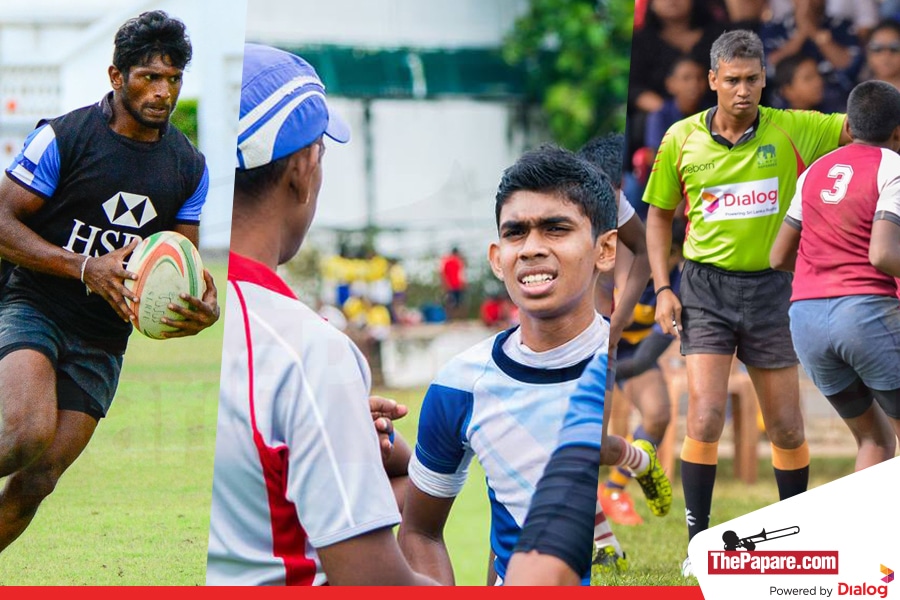With an average 2015/16 club season, a failed Asian 15’s competition, a drubbing in the Olympic 7’s qualifications and a controversy riddled schools season, we are forced to question ourselves ‘what is causing such abysmal failures’.
The only way to describe this colossal bungling is ‘a systemic botch’. All stakeholders of the rugby community must take full responsibility for these laughably repetitive catastrophes. Administrators, coaches, players, referees, sponsors, the media, and even the fans must take accountability for these disasters. Considering the plethora of concerns Sri Lanka faces domestically, it is quite an accomplishment to have had the little success the Tuskers have managed so far.
This two part serial is a rather disconsolate attempt to delve into the issues plaguing our favourite sport. Part one will highlight on- field issues while part two will look at off field issues such as administration, fans, media, sponsors etc.
Referees
The standard of refereeing in Sri Lanka is a vociferously debated subject in the circles with pundits slamming it ‘ridiculous’ and waging how these decisions adversely impact the game in Sri Lanka. The best referees in the world have said “no one should know the name of a referee by the end of a game”, sadly in Sri Lanka, we know the names of almost every referee at the end of the game.
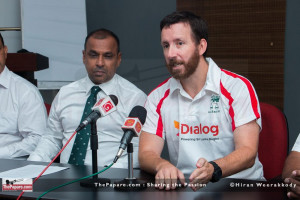
Firstly, the number of top level referees is a far too small for the amount of rugby being played in Sri Lanka. There needs to be a system in place to introduce and develop former players to refereeing. Referees like players need to be given a full time career options where they can become professional referees with room for growth.
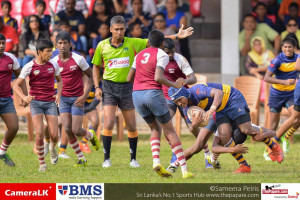

Additionally, their decision making powers under pressure and their ability to control the game is appalling. They need to learn how to make decisions in critical areas and how to convey those decisions and instructions clearly to players, coaches and fans. This will shrink many an altercation with fans.
Coaches
There is an absence of overall structure within the coaching system in Sri Lanka, with no long term plans, accountability and direction, from grassroots all the way up to the national side.
From an administrative stand-point, there is no registration or accreditation required to be a coach in Sri Lanka. Officials need to invest in coaching clinics and development programmes 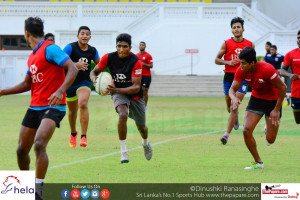
At the school’s level, coaches are forced to focus on short term success and as a result, we see very little development for the future. Schools rugby is the only form of development that young players get and it is crucial that the fundamentals are instilled in players at a young age.
Sri Lanka has numerous junior coaches that hold little knowledge of the basics and have even less knowledge of how to instill them in young players. So often we see players coming into 1st XV and under 18 sides with no knowledge of the basics and as a result, it is impossible for senior coaches to build teams as they have to focus on the individual basics rather than work on developing a team. This lack of development at junior ages, forces coaches to micro-manage teams at senior level and this means players never learn to make decisions on the field under pressure. A coach’s job is to prepare players for the game, once the team takes the field the captain and senior players have to make all the decisions but in Sri Lanka, they look to the bench for virtually every decision and when they do not look to the bench they almost always end up making the wrong decision.
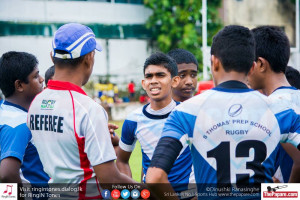
Once players reach the U 16 and under 18 stage, the fundamentals need to be down to muscle memory and a coach can start to work on the player’s decision making skills. They can teach them when and where to implement all the basics they’ve learned at a young age and can also work on teaching their players how to work around the break down and start working on set pieces in detail.
If these aspects are drilled into players at a young age, once they reach the under 20 level coaches can start implementing more structure and in-depth game plans. Coaches can also work on developing players mentally, teach them to deal with pressure and adapt to what is happening on the field. They can work on helping players come together as a team without having to worry about teaching basics.
With all these skills players coming out of the school’s system, players will be fully equipped to make the move to professional rugby. If this system can be implemented correctly club coaches and National coaches will find it much easier to assimilate good players into their squads.
Players
A lot of criticism must be placed on the top level players as well. The attitude of most players in the schools and club league is very amateurish. Very few players are keen to work on and improve their game on a daily basis and their priorities are not in order. Far too many players seem content with being just average and don’t have the drive to push themselves to be the best.
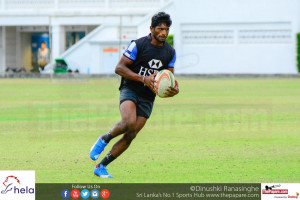
Players must also take the time to work on strength and conditioning levels in the off season. Stamina, strength, speed, and agility are all aspects that players can work on alone which will, in turn, grow their individual performances.
Additionally, players need to develop their game- knowledge, by repeatedly watching game footage both of international players as well as of themselves. They have to spend time studying what needs to be worked on and how they can work on it.
The biggest issue plaguing those involved on the field is a lack of overall structure within the game. Everything seems very ad-hoc and there are no systems in place to expand and build on what is a very good amateur foundation.
There is no synchronization between players, coaches and referees. Countries like New Zealand consistently produce brilliant rugby teams is the cohesion between all branches of the game. They encourage healthy debate and have primary and secondary goals for both the short term as well as long term expectations.
There also appears to be lack of culture within the rugby fraternity. Most of the stakeholders mentioned above have very little knowledge of the unwritten rules of how the game should be played; the spirit of the game which makes rugby the greatest sport in the world (in this writer’s opinion). Everyone, from players to coaches to referees to administrators to journalists to sponsors to fans need to make a conscientious effort to develop themselves and in turn grow the game.
The upcoming Sri Lanka Sevens tournament is certainly a step in the right direction. There are obviously many individuals who work tirelessly to develop and grow the sport. While being grateful to them, let’s hope this collective ‘nudge’ inspires the others.

